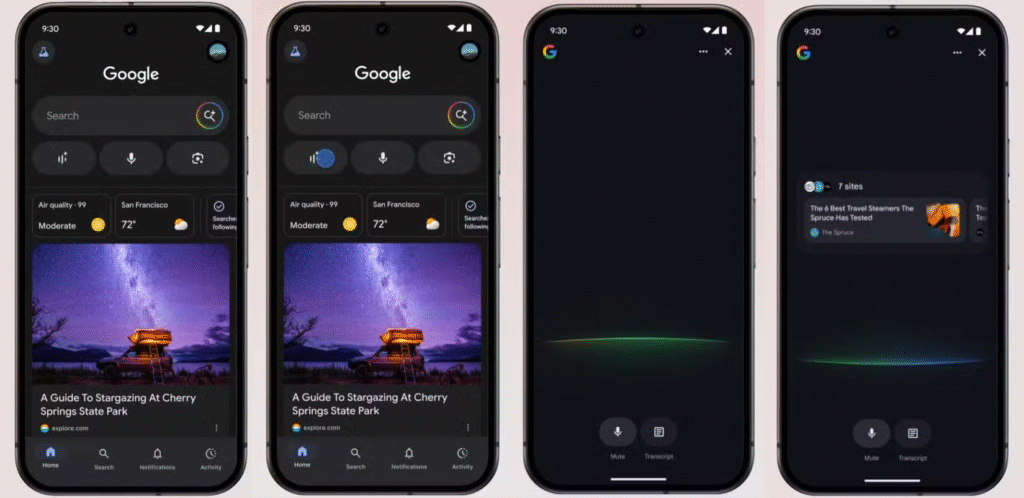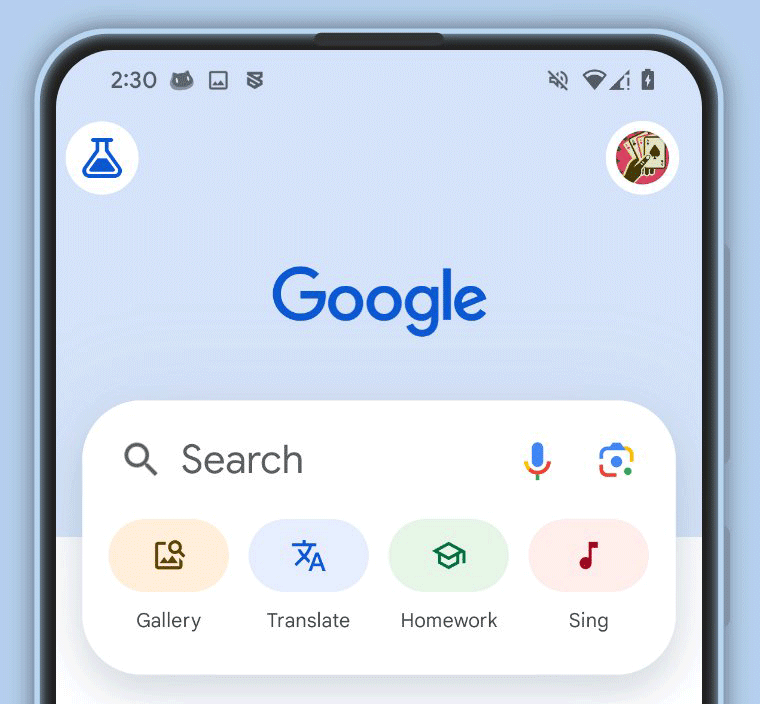For over two decades, the ritual of using Google has been etched into our digital DNA: you type a query, you get a list of ten blue links, and you begin your hunt for information. That era is officially ending. In its most significant transformation yet, Google is rolling out a new, dedicated “AI Mode” that fundamentally reimagines the search experience, turning it from a list of links into a direct conversation with Gemini.
This isn't just another name for the “AI Overviews” that have been popping up at the top of your results. This is a deliberate, user-activated state that changes the entire search page into an immersive answer engine. It's Google's boldest step yet into the new world of generative AI, and it has massive implications for how we find information.
Let's dive into what this new mode is, how it works, and the expert take on why this is a bigger deal than you might think.
AI Mode vs. AI Overviews: What's the Difference?
It's easy to get confused with Google's flurry of AI branding, so let's clarify this first. This is a key point for understanding Google's strategy.
- AI Overviews: These are the AI-generated summaries that Google automatically shows at the top of some search results. They are designed to give you a quick gist for simple queries.
- AI Mode: This is a manual toggle you switch on to enter a persistent, conversational search experience. It's designed for more complex, multi-step, or exploratory questions where you want to have a back-and-forth dialogue with the AI. Think of AI Overviews as a quick summary, while AI Mode is a deep-dive conversation.
Essentially, AI Mode is Google integrating a full-fledged chatbot, powered by a custom version of Gemini, directly into its most valuable piece of real estate.

How It Works: Meet ‘Search Live'
To get started, you first need to opt-in via Google Labs (currently available in the U.S. on the Google app for Android and iOS). Once enabled, you'll see the “AI Mode” toggle below the search bar.
When you activate it, the experience changes. But the most recent and exciting development within AI Mode is a new feature called Search Live. This allows you to have a spoken, back-and-forth conversation with Google Search.
Here’s how it feels to use it:
- In the Google app, with AI Mode enabled, you tap a new Live icon.
- You can then verbally ask your question, no matter how complex. For example, “I'm planning a trip to the coast of Angola for a week. What are three must-see spots, and what kind of clothes should I pack for the weather in late June?”
- Instead of just a text response, Gemini will answer you with a conversational, AI-generated voice.
- The conversation remains active, so you can ask natural follow-up questions like, “Okay, for those spots, are there any good local restaurants you'd recommend?” without having to start over.
It's designed to be a hands-free, intuitive way to explore complex topics, powered by Gemini's advanced reasoning and Google's massive index of real-time information.
The Expert Take: Why This Is a Foundational Shift
This new AI Mode is far more than just a new feature; it's a statement of direction.
- The “Answer Engine” Transition: Google is moving from being a search engine (which helps you find information) to an answer engine (which gives you the information directly). This is a direct strategic response to the rise of competitors like Perplexity AI and OpenAI's ChatGPT.
- Brand Consolidation: For a while, Google's AI strategy felt fragmented (Bard, Assistant, SGE, Duet AI). By placing its most powerful AI, Gemini, at the heart of its most used product, Search, Google is clarifying its vision and brand.
- The Huge Question for the Web: The biggest implication is for the entire web ecosystem. If Google's AI can answer your question completely, providing a comprehensive summary of the best information from across the web, what is the incentive to click through to the original websites? This poses a fundamental challenge to web publishers, bloggers, and businesses that rely on SEO and organic traffic.
A Powerful but Complicated Future
There's no denying that Google's AI Mode is an incredibly powerful tool. For complex research, planning, and getting direct answers, it can save a tremendous amount of time and effort. The experience is fast, conversational, and genuinely useful.
However, its power comes with a significant trade-off. By positioning itself as the ultimate synthesizer of information, Google risks creating an AI echo chamber, potentially reducing traffic to the diverse ecosystem of independent creators and primary sources that made its search engine so valuable in the first place.
This is a feature every tech enthusiast should be watching closely. It’s not just a new button; it’s the beginning of the end for the “ten blue links” and a glimpse into a future where our interaction with information is conversational, direct, and arbitrated by AI.



